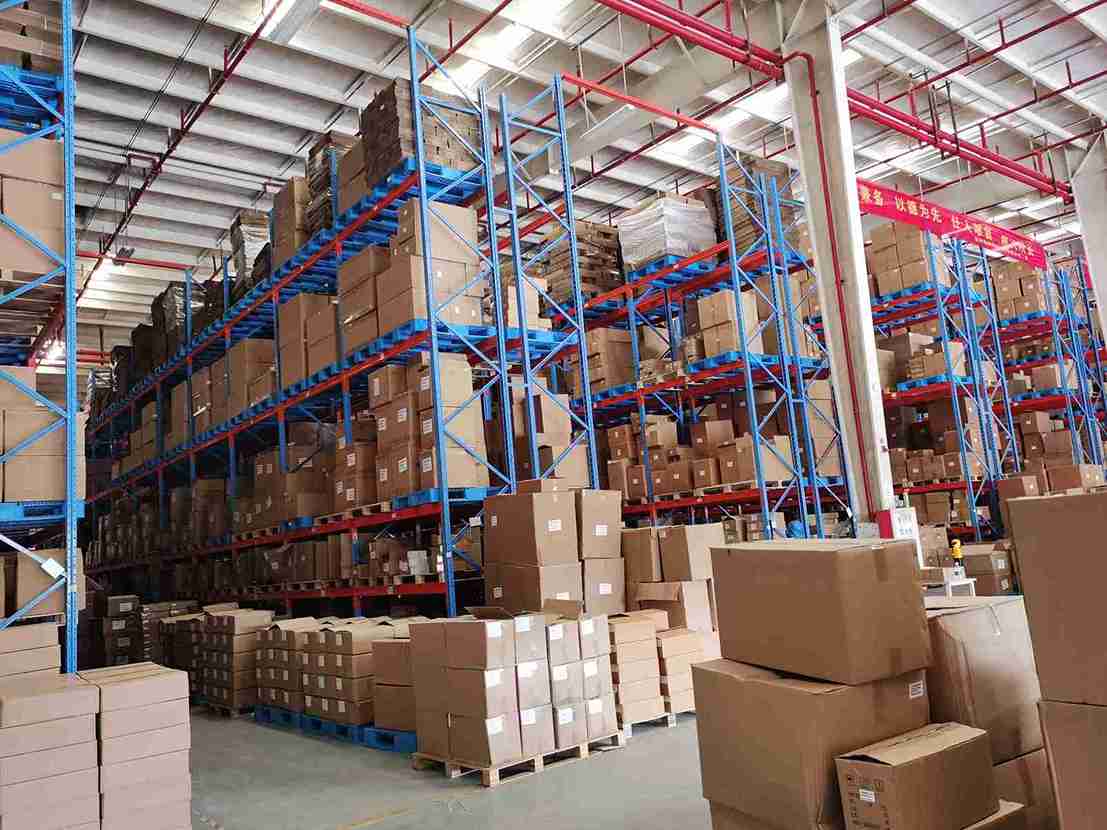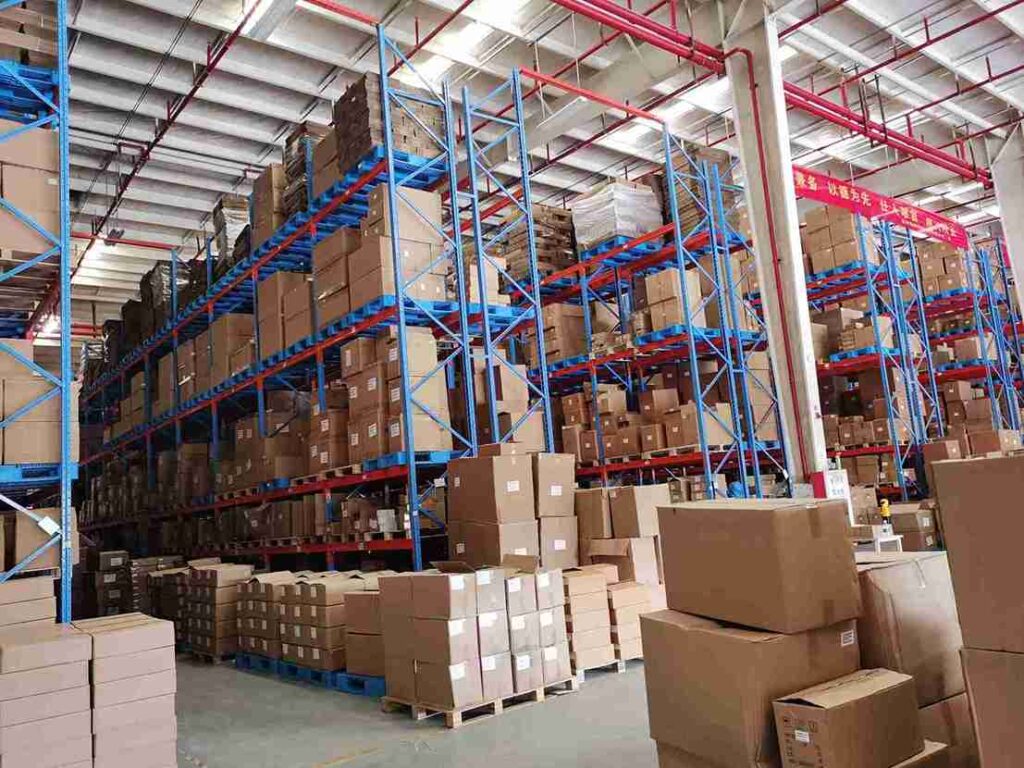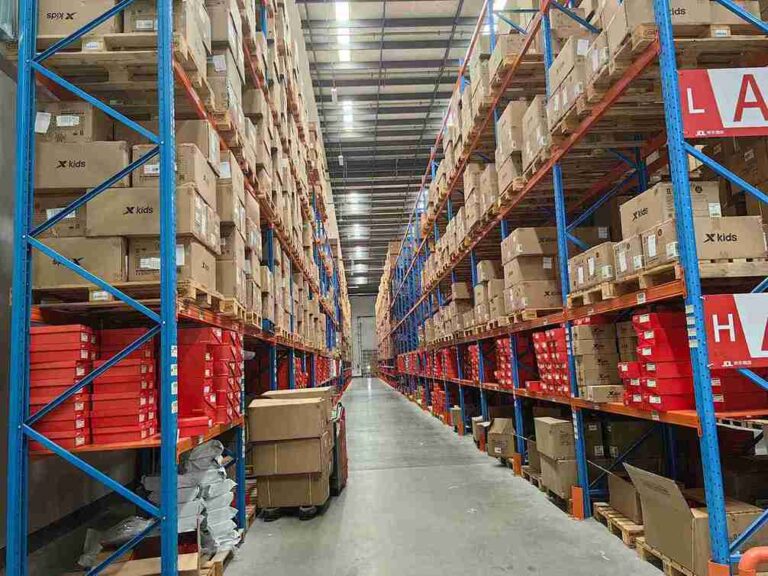📐 "First 50 Enterprise Queries Get Custom 3D Warehouse Design" Plan

Introduction: Decoding Warehouse Racking Costs for Smart Buyers
When businesses evaluate warehouse racking costs, they’re not just looking at price tags—they’re investing in operational efficiency, safety, and long-term storage scalability. With prices ranging from $50 to $1,500+ per pallet position, understanding what drives warehouse racking costs is critical for budgeting accurately.
This guide dives deep into:
✔ Real-world pricing for all major racking types (selective, drive-in, push-back, and more)
✔ Hidden expenses most suppliers won’t mention (permits, reinforcement, maintenance)
✔ Cost-saving strategies used by Fortune 500 warehouses
✔ 2024 market trends impacting steel prices and lead times
Designed for warehouse managers, procurement specialists, and logistics planners, this resource eliminates guesswork—helping businesses secure the best ROI on warehouse racking systems.

1. Warehouse Racking Cost Breakdown by System Type
1.1 Selective Pallet Racking: The Budget-Friendly Workhorse
Average Cost: $100–$250 per pallet position
Best For: Warehouses with high SKU diversity
As the most common system, selective pallet racking dominates low-to-mid-range warehouse racking costs due to:
Standardized components (beams, frames, wire decks)
Easy reconfiguration as inventory needs change
No specialized forklifts required
Pro Tip: Opt for 3″ beams instead of 4″ for light loads (saves $15–$20 per beam).
1.2 Drive-In Racking: High-Density Storage at a Premium
Average Cost: $200–$400 per pallet position
Best For: Cold storage, beverage distributors
Drive-in racking costs run higher because:
Structural reinforcements are needed to withstand forklift impacts
Fewer aisles = more pallets per square foot
LIFO retrieval limits flexibility
Case Study: A Midwest frozen food supplier cut warehouse racking costs by 18% using hybrid drive-in/selective layouts.
1.3 Push-Back Racking: Pay More for Faster Picking
Average Cost: $250–$600 per pallet position
Best For: Perishables, pharmaceutical warehouses
This system’s gravity-fed design justifies its higher warehouse racking costs through:
40% faster picking speeds vs. selective racking
Deeper storage lanes (up to 6 pallets deep)
Lower labor costs over time
1.4 Pallet Flow Racking: Automation at a Price
Average Cost: $300–$700 per pallet position
Best For: High-volume FIFO operations
The rollers/wheels in pallet flow systems add $150–$300 per lane to warehouse racking costs, but deliver:
Zero energy consumption (gravity-powered)
15–25% better space utilization
Ideal for expiration-date-sensitive goods
1.5 Cantilever Racking: Heavy-Duty Pricing
Average Cost: $500–$1,500 per bay
Best For: Steel pipes, lumber, furniture
Unlike standard systems, cantilever racking costs scale with:
Arm length (6′ arms cost 30% more than 4′)
Freestanding vs. wall-mounted designs
Specialty coatings for corrosive environments
2. The 7 Factors That Make or Break Warehouse Racking Costs
2.1 Steel Prices & Market Volatility (2024 Update)
Current steel prices fluctuate between $0.35–$0.55 per pound, directly impacting warehouse racking costs. The U.S. Department of Commerce reports a 12% YOY increase due to:
Tariffs on imported steel
Energy cost inflation
Post-pandemic demand surges
Strategy: Lock in quotes during Q1 (traditionally lower demand).
2.2 Load Capacity Requirements
A light-duty system (5,000 lbs/level) costs 45% less than heavy-duty (20,000+ lbs/level). Overestimating capacity wastes money; underestimating risks collapses.
2.3 Installation Complexity
Professional installation adds $3,000–$15,000 to warehouse racking costs but prevents:
OSHA fines ($15,625 per violation)
Product damage from improper assembly
Early system failure
2.4 Warehouse Height Utilization
Racking over 20′ tall requires:
Specialized forklifts (+$25,000–$80,000)
Seismic bracing (+$8–$12 per sq. ft.)
Fire suppression upgrades
2.5 Used vs. New Racking: The True Cost Comparison
| Factor | Used Racking | New Racking |
|---|---|---|
| Upfront Cost | 30–50% savings | Full price |
| Lifespan | 8–12 years | 15–25 years |
| Warranty | None | 10–20 years |
| Compliance | May not meet current codes | OSHA/ANSI certified |
Expert Take: Used systems work for short-term projects, but new racking wins for long-term operations.
3. Hidden Costs That Inflate Warehouse Racking Budgets
3.1 Permit & Engineering Fees
Building permits: $200–$2,000 (varies by city)
Structural engineer stamps: $1,500–$5,000
3.2 Ongoing Maintenance
Annual inspections: $500–$3,000
Beam replacement: $75–$200 per beam
3.3 Productivity Losses During Installation
A 10,000 sq. ft. warehouse loses $8,000–$20,000 in downtime during a 2-week install.
4. Proven Strategies to Reduce Warehouse Racking Costs
4.1 Bulk Purchasing Discounts
Ordering 50+ pallet positions often triggers 5–15% discounts.
4.2 Hybrid System Design
Combining selective and push-back racking can lower total warehouse racking costs by 22% (per Modern Materials Handling).
4.3 Lease-to-Own Options
$0-down financing spreads payments over 3–7 years.
5. The Future of Warehouse Racking Costs (2025–2030)
AI-driven space optimization could cut warehouse racking costs by 9%
Modular aluminum systems may disrupt steel dominance
Automated storage/retrieval systems (AS/RS) will redefine cost structures
Conclusion: Smart Spending on Warehouse Racking
Navigating warehouse racking costs requires balancing upfront investment with long-term operational gains. By:
✅ Auditing actual storage needs (not theoretical capacity)
✅ Comparing 3+ supplier quotes
✅ Factoring in 10-year TCO
Businesses can secure high-quality racking without overspending.
FAQs: Warehouse Racking Costs
1. How much does it cost to rack a 10,000 sq. ft. warehouse?
Expect $75,000–$300,000 depending on system type and height.
2. What’s the cheapest warehouse racking option?
Used selective racking starts at $50/pallet position.
3. Do racking prices include delivery?
Most suppliers charge $500–$2,000 for freight.
4. How long does racking installation take?
2–6 weeks for mid-sized warehouses.
5. Can I deduct racking costs on taxes?
Yes—Section 179 deductions apply to qualifying systems.




